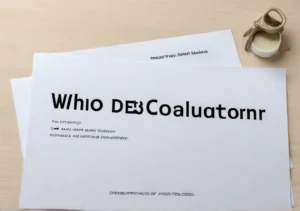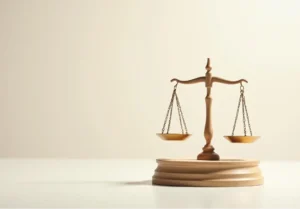
Debt collection can feel intimidating, especially when you wonder what those agencies can truly take from you. Most people know they shouldn’t ignore their debts, but it’s crucial to understand the scope of a collector’s powers.
Debt collection agencies typically do not have the authority to take your car or other personal belongings without following legal procedures. They must first sue you and obtain a court judgment to enforce collection through asset seizure. There’s more to this issue than meets the eye, and you might be surprised at the details waiting to be uncovered below.
Key Takeaways:
- Debt collection agencies cannot seize your car or belongings without a court judgment obtained through proper legal procedures.
- Certain assets, including your primary vehicle and necessary personal items, may be exempt from seizure based on state laws.
- Staying informed about your rights and communicating openly with creditors can help you navigate debt collection more effectively.
Disclaimer: The information on this blog is for general educational purposes only and does not constitute personalized financial advice. While we strive for accuracy, FinanceBeacon cannot guarantee the reliability or suitability of the content for your specific financial decisions. Always consult a qualified financial advisor before making any financial choices. Use this information at your own risk.
What are Debt Collection Agencies Allowed to Do?
Debt collection agencies have a specific role in the financial landscape. Essentially, they’re tasked with recovering unpaid debts on behalf of companies or lenders. They don’t have the authority to act like law enforcement; instead, they operate within a framework of laws designed to protect consumers.
These agencies can contact you about your debts through calls, letters, or even email. However, they must treat you fairly and are prohibited from using deceptive practices. For example, they can’t harass you or call at unreasonable hours. Only the original creditor can sue you directly, not the collector, unless they’ve purchased the debt.
If they pursue you for payment, they must provide verification of the debt if requested, ensuring transparency in their methods. Importantly, while debt collectors can impact your credit score and consider garnishing your wages, direct seizure of property like cars isn’t straightforward and is often subject to legal processes.
Can They Seize Your Car?
Your car isn’t automatically up for grabs by debt collectors just because you owe money. The legal process surrounding vehicle seizures is layered and dependent on a few conditions.
First off, a collector needs a court judgment to proceed with seizing your vehicle. This often entails filing a lawsuit against you and winning the case, proving that you owe the debt and have defaulted. After getting a judgment, the collector can then seek to enforce it by garnishing wages or potentially placing a lien on your vehicle.
But there’s a flip side to this—exemptions. Certain states have laws that protect specific assets, including cars, from seizures, especially if they are essential for your daily life, like commuting to work.
If you’re facing the threat of collection, keep these points in mind:
- Seek Legal Advice: Consult with a legal professional who understands your state’s laws. They can clarify what protections you might have.
- Stay Informed: Know your rights under the Fair Debt Collection Practices Act (FDCPA). This federal law lays out what debt collectors can and can’t do.
- Keep Records: Document all communications with the debt collector. This can be helpful if you need to dispute their claims or actions.
Understanding the limits of what debt collection agencies can do might provide you with some peace of mind. Always stay proactive in addressing your debts to avoid escalating issues.
The Importance of a Court Judgment
Debt collection agencies can’t just waltz in and take your car or belongings. They need a court judgment to back them up legally. This means that you first have to be sued for the debt and lose that case in court. The agency must prove you owe the money, and then the court will issue a judgment that confirms this.
Without that court order, any attempt to seize your property can lead to legal trouble for the collectors. They could be facing fines or even criminal charges for unlawful repossession. This is particularly true for personal items deemed essential, like your car, which can fall under exemptions.
Court judgments also provide a specific amount that a collector can pursue. They might follow this up with a variety of actions to collect, but it’s all on the up-and-up once they have that official ruling. So, keep in mind: until a debt collection agency gets that judgment, your belongings are generally safe.
What Happens After a Judgment?
Once a debt collector secures a court judgment, they’ve got a few ways to go about collecting what’s owed. First up, they might place a lien on your property. This means that the debt is officially tied to your assets, which can complicate sales or refinancing until it’s settled.
They might also pursue wage garnishment, which takes a chunk out of your paycheck directly. Before garnishing, they typically have to notify you, and there’s usually a maximum percentage that can be taken, depending on your state.
If they’re feeling more aggressive, they could seek to seize your non-exempt assets. This is where things can get tricky. Usually, collectors can’t nab essential items like a primary vehicle, necessary tools for work, or household furnishings. However, luxury items or multiple vehicles could be fair game.
It’s worth noting that collectors often prefer to work out a settlement. Many would rather negotiate a lower amount than go through the long process of seizing assets. This is your chance to push back a bit. If you’re in touch with them, see if they’re willing to accept terms that work better for your budget.
Understanding these processes is crucial, especially if you find yourself facing a judgment. Keeping lines of communication open can sometimes turn a tense situation into a manageable one.
Are There Exceptions to the Rule?
Debt collection agencies typically can’t just waltz in and take your car or belongings without due process. However, exceptions do exist. If a creditor has taken legal action and won a judgment against you, they can use that judgment to reclaim assets. This often happens through collection methods like garnishment or property liens.
Certain debts, such as mortgages or auto loans, also allow creditors to reclaim property directly tied to the loan if you default. For instance, if you fall behind on your auto loan, the lender can repossess your vehicle. Also, some state laws grant collectors more leeway, particularly for debts like unpaid taxes or child support. These unique circumstances mean it’s crucial to understand the specific laws in your state.
If a collection agency tries to take your stuff, they must follow proper legal channels. They can’t just show up and take things; they must usually first obtain a court order, except in cases of secured debts. Therefore, stay informed, and if in doubt, consult a legal expert to clarify your situation.
What Belongings Can Be Exempt?
Not everything you own is at risk of being taken by debt collectors. Several belongings are often protected, so here’s a quick look at what generally qualifies as exempt property:
- Primary residence: Your home often can’t be taken, especially under state homestead laws.
- Essential tools: Items necessary for your trade or job, like a computer for work, may be exempt.
- Personal items: Clothing, furniture, and basic household goods are also protected to some extent.
- Retirement accounts: Funds in certain retirement accounts are commonly protected from creditors.
- Motor vehicle: There’s usually a limit on the value of the car that can be exempted, which varies by state.
It’s important to check your state’s specific exemptions since laws differ widely. Also, consider documenting your assets and their values. If a collection agency is trying to collect debts, you can demonstrate what belongs to you and what’s off-limits. Knowing what’s protected can help you stand firm and avoid unnecessary stress.
How to Protect Your Assets
Debt collection can feel overwhelming, but knowing how to safeguard your possessions can ease some of that stress. First off, understand your state’s exemption laws. Many states protect certain assets from collection, including a portion of your home equity, your vehicle, and personal belongings. Familiarize yourself with these exemptions; you might be pleasantly surprised at what’s off-limits.
Keep everything documented. If you own valuable items, take photos and keep receipts. This could help disputes later, proving what you had if things get messy. Consider moving valuable items out of reach; that doesn’t mean hiding them, but it might be wise to keep them in a friend’s garage or storage unit if you’re facing serious financial issues.
Communicate openly with creditors. Ignoring calls can lead to aggressive collection practices. Let them know your situation and explore options like payment plans or settlements. In some cases, debt collectors may be more understanding than you think.
Lastly, think about asset shielding. This might involve setting up a trust or other financial structures to protect your belongings. Consult with a financial advisor or attorney to see if this makes sense for you. They can provide tailored advice for your situation and help craft a strategy to keep your assets safe.
Recent Trends in Debt Collection Laws
Debt collection is always changing, thanks to new regulations aimed at protecting consumers. In recent years, there’s been a push to curb abusive practices in collections. For instance, the Consumer Financial Protection Bureau (CFPB) has tightened rules about how and when collectors can communicate with you. Now, they must provide clear notices detailing the debt, options for disputing it, and the right to request verification.
One notable trend is the growing prevalence of digital communication. Collectors are increasingly using text messages and emails to reach you. Be cautious here—this can lead to more aggressive tactics if not managed well. It’s crucial to be aware of the Fair Debt Collection Practices Act, which outlines what collectors can legally do and how they can interact with you. Knowing your rights is vital.
Another significant shift is the increased scrutiny on collection agencies themselves. There’s a movement towards holding them more accountable for errant practices, leading to higher penalties for violations. Be aware of these trends, and keep an eye on any changes in legislation that might provide you with additional protections. These regulations can significantly impact your experience and options when dealing with debt collectors.
Staying informed and proactive can help you navigate this tricky landscape.
As a financial advisor, my goal is to guide you through the world of personal finance with clear, practical advice. With a dedication to clarity and your financial well-being, I’m here to provide insightful guidance and support as you build a foundation of wealth and security.







